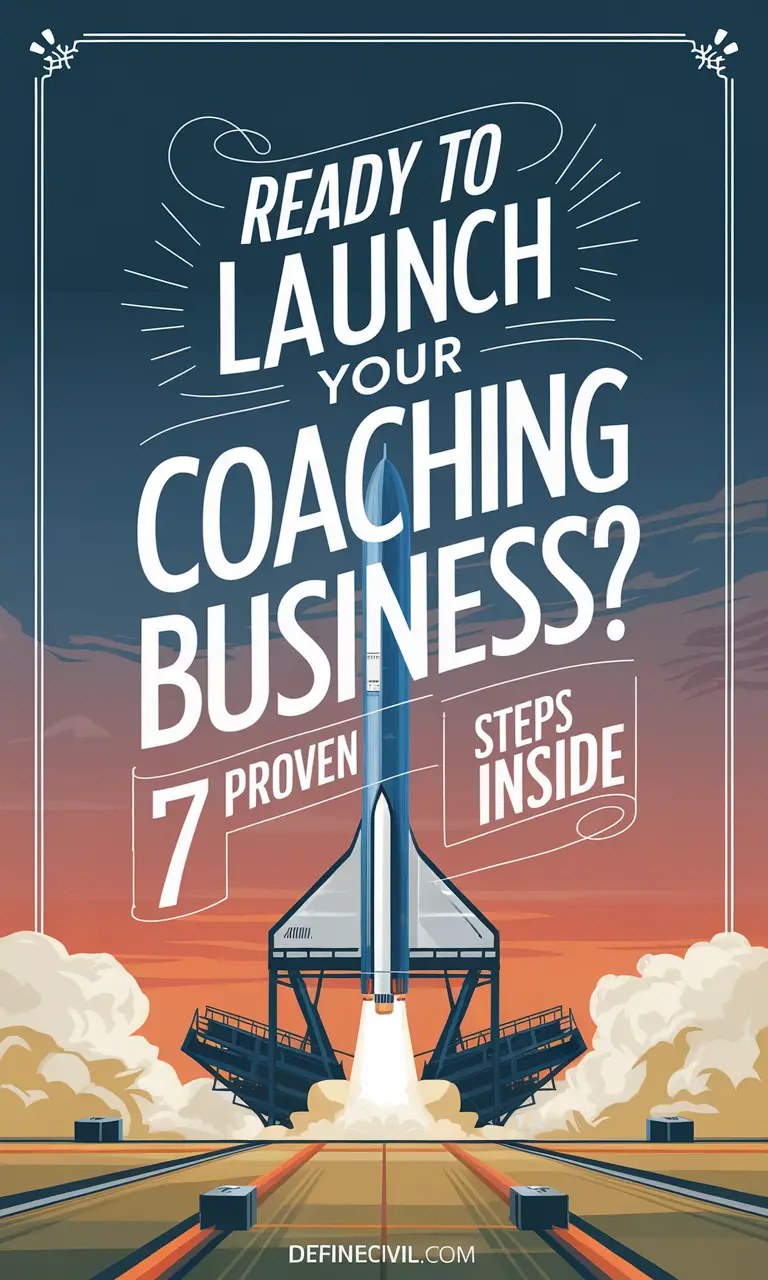
Is It Too Late to Start a Coaching Business? A Guide for MidLife Career Changers
Many individuals in their 40s, 50s, and beyond are considering a career change, and becoming a coach is an attractive option. However, a common concern is whether it’s too late to start a coaching business in midlife. The answer is a resounding “no.” In fact, your experience and maturity can be significant advantages in the coaching industry.
The Benefits of Starting a Coaching Business in Midlife
When you’re considering a career change, it’s natural to worry about being too old to start anew. However, midlife career changers bring a unique set of skills and experiences that can be highly beneficial in the coaching industry. Here are some of the benefits of starting a coaching business in midlife:
- Life experience: By the time you’ve reached midlife, you’ve likely accumulated a wealth of knowledge and insight from your personal and professional experiences.
- Maturity: Midlife brings a level of emotional maturity that can help you navigate complex coaching relationships and provide a stable, supportive environment for your clients.
- Established network: You’ve had time to build a professional and personal network, which can be a significant advantage when it comes to marketing your coaching services and finding clients.
- Clearer sense of purpose: Many people in midlife have a clearer sense of their values, passions, and strengths, which can help guide their coaching practice and attract clients who resonate with their niche.
Why Your Experience is Your Greatest Coaching Asset
Your experience is a valuable asset in the coaching industry. Here are some ways your experience can be leveraged to build a successful coaching business:
- Credibility: Your experience lends credibility to your coaching practice. Potential clients are more likely to trust someone with a proven track record and a depth of knowledge.
- Niche expertise: Your experience can help you establish a niche or area of specialization, which can be a key differentiator in a crowded coaching market.
- Real-world examples: Your experience provides a wealth of real-world examples and case studies that can be used to illustrate coaching concepts and make them more relatable to clients.
- Practical wisdom: Your experience has given you practical wisdom that can be applied to coaching, allowing you to offer actionable advice and guidance to your clients.
Overcoming Common Concerns
While there are many benefits to starting a coaching business in midlife, there are also some common concerns that may be holding you back. Here are a few:
- Not having the right qualifications: While certain certifications or qualifications may be beneficial, they’re not necessarily a barrier to entry. Many successful coaches have built their businesses without formal coaching certifications.
- Fear of technology: As a midlife career changer, you may be concerned about your ability to learn new technologies or navigate online marketing platforms. However, there are many resources available to help you get up to speed.
- Competition: The coaching industry is competitive, but it’s also growing rapidly. By identifying a niche or area of specialization, you can differentiate yourself and attract clients.
Steps to Launching a Coaching Business
If you’re considering starting a coaching business, here are some steps to get you started:
- Identify your niche: What area of coaching are you most passionate about? What experience or expertise do you bring to the table?
- Define your target market: Who are your ideal clients? What are their pain points, and how can you help them?
- Develop your coaching skills: While formal certification may not be required, it’s still essential to develop your coaching skills. Consider taking courses or working with a mentor to help you get started.
- Build your brand: Establishing a strong brand is crucial to attracting clients and building a successful coaching business. This includes creating a website, developing a marketing strategy, and establishing a presence on social media.
Building a Successful Coaching Business
Once you’ve launched your coaching business, here are some tips for building a successful and sustainable practice:
- Focus on providing exceptional service: Your clients are the lifeblood of your business. Focus on delivering exceptional service, and you’ll be more likely to build a loyal client base.
- Continuously develop your skills: The coaching industry is constantly evolving. Stay up to date with the latest trends and best practices by continuously developing your skills.
- Leverage your network: Your professional and personal network is a valuable resource. Leverage it to find new clients, get referrals, and build strategic partnerships.
- Be patient: Building a successful coaching business takes time. Be patient, stay focused, and you’ll be more likely to achieve your goals.
Conclusion
Starting a coaching business in midlife is not too late. In fact, your experience, maturity, and established network can be significant advantages in the coaching industry. By leveraging your strengths, identifying your niche, and developing your coaching skills, you can build a successful and sustainable coaching business. Don’t let age hold you back – take the leap and start building the coaching business you’ve always wanted.
Frequently Asked Questions
Is it too late to start a coaching business in midlife?
No, it’s not too late. Your experience and maturity can be significant advantages.
What are the benefits of starting a coaching business in midlife?
The benefits include life experience, maturity, an established network, and a clearer sense of purpose.
How can I leverage my experience to build a coaching business?
You can leverage your experience to establish credibility, niche expertise, and provide real-world examples.
Do I need formal coaching certifications to start a coaching business?
No, formal coaching certifications are not necessarily a barrier to entry, but developing your coaching skills is essential.
How do I identify my niche in the coaching industry?
Identify your area of passion and the experience or expertise you bring to the table.
What are the key steps to launching a coaching business?
The key steps include identifying your niche, defining your target market, developing your coaching skills, and building your brand.
How can I build a successful and sustainable coaching business?
Focus on providing exceptional service, continuously develop your skills, leverage your network, and be patient.
